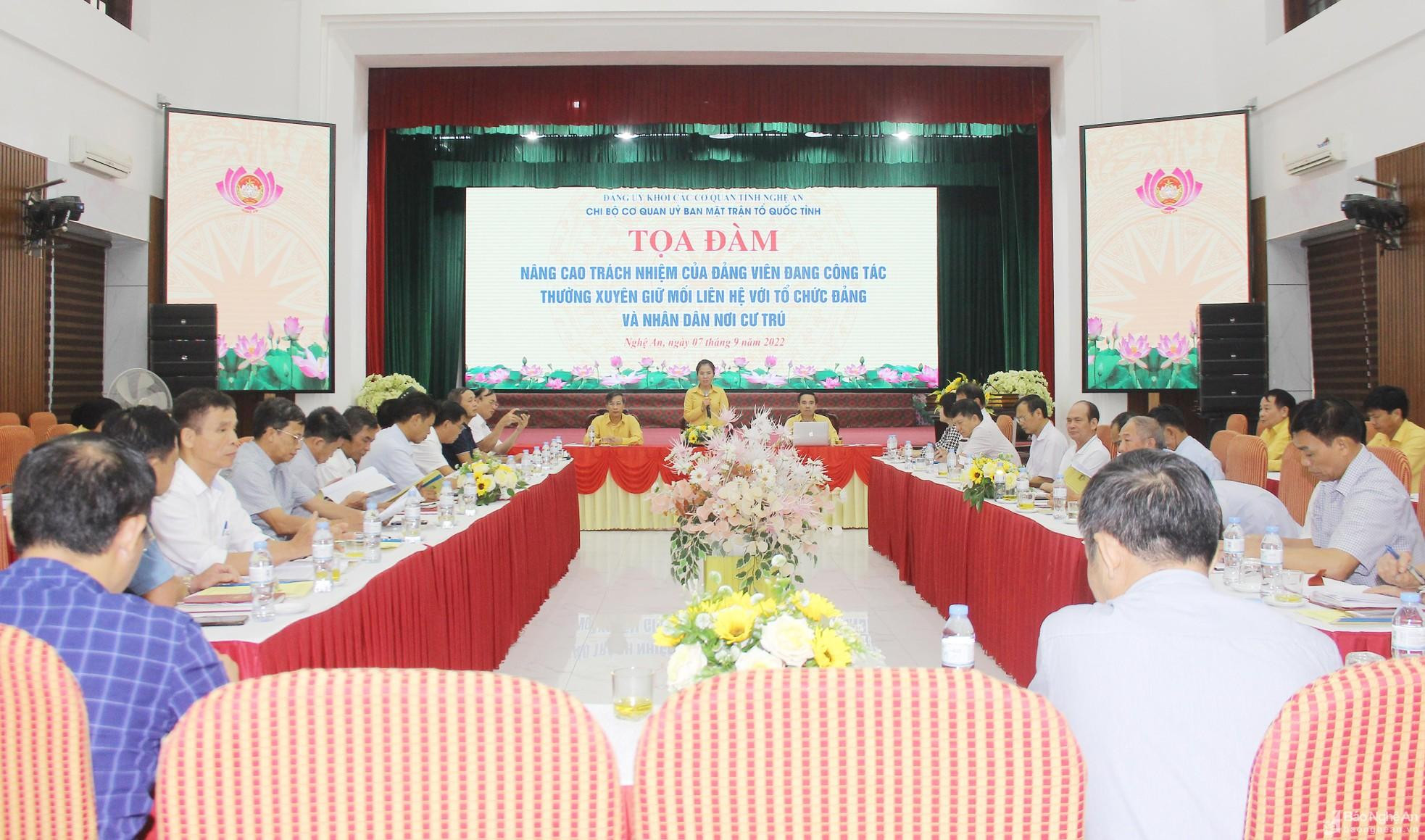To make party members truly attached to their place of residence
(Baonghean.vn) - The lack of regular and strict monitoring and management of party members at their place of residence will not promote the positivity, proactiveness, and effectiveness of proposals, advice, experience sharing, and contributions of party members at their place of residence - an important intellectual resource of the locality...
Nowadays, it is quite common for cadres, civil servants and party members to live and work near their agencies and offices and to “eat at home”. Every week, they have Saturday and Sunday off, and many holidays during the year. Outside of work, they have a lot of time to be close to their families, neighbors, villages and hamlets. Therefore, promoting the pioneering and exemplary role of party members is not only necessary and meaningful in the agencies and offices where they work, but also very necessary and meaningful in the places where they live.
On January 2, 2020, the 12th Politburo issued Regulation 213-QD/TW, regulating "the responsibility of party members who are working regularly to maintain contact with the party organization and the people at their place of residence". This regulation replaces Regulation No. 76-QD/TW dated June 15, 2000 of the 8th Politburo "on party members who are working in agencies, enterprises, and public service units to regularly maintain contact with the Party Cell, the grassroots Party Committee, and exemplary performance of civic duties at their place of residence".
 |
| The Party cell of the Nghe An Provincial Fatherland Front Committee organized a seminar on "Improving the responsibility of Party members who are working regularly to maintain contact with the Party organization and the people in their place of residence". Photo: Mai Hoa |
Article 1 of Regulation 213 clearly states: “Party members working in agencies, enterprises, public service units, and armed forces (hereinafter referred to as working party members) must both implement the Party Charter's regulations on Party activities at the workplace and have the responsibility to regularly maintain contact with the Party organization and the people where they reside; be close to and attached to the people; overcome manifestations of living far from the people and lack of responsibility in the work of the people where they reside; strengthen the close relationship between the Party and the people; promote the role and responsibility of party members in Party building and building the grassroots political system”.
Article 2 of this Regulation also specifically states 7 tasks of party members working at their place of residence. Among them, there are very important requirements to demonstrate the pioneering and exemplary role of party members before the people.
The implementation of Regulation 213 is meaningful in creating conditions, monitoring and managing more closely the attachment of party members to the party organization and the people in their place of residence. Many establishments have taken advantage of the practical contributions of party members residing in the area; at the same time, maintaining proper relationships with agencies, enterprises and schools in monitoring and supervising party members residing in their area.
However, in many places, the attachment of party members to their place of residence is still formal, not regular, not tight. There is still the phenomenon of "spring and autumn two periods", party members only meet and contact the Party Committee of their place of residence when asking for comments about themselves to submit to the party organization where they work. There is still the phenomenon of organizing a meeting between party members living at the end of the year and the Party Committee or Party cell, listening to general assessments, then having a summary party. There is still the phenomenon of party members never attending meetings with the people, not even knowing who is the Party Committee, who is the group leader, who is in charge of the organizations in their place of residence, etc. There is still the phenomenon of spending money to contribute, doing social work, then considering it as having a connection with the locality without a close connection, even living separately from everyone on a daily basis, etc.
In many places, the local Party Committee is lenient and lenient with the Party members who are working. If they do not see anything unusual, they consider that Party member has done a good job as a Party member at the place of residence. In some places, the Party Committee "uses" the Party members who are working to make appeals, "open letters", etc. to mobilize contributions and support, paying little attention to creating cohesion and exchanging information and experiences. In particular, in some places, the Party Committee does not have a firm grasp of the Party members who are operating according to Regulation 213 in their area. Sometimes they are transferred to another agency, promoted or disciplined, etc., but do not know. Due to the lack of information and the lack of appropriate activities, the assessment of the Party members' activities at the place of residence is also limited. Sometimes, only the Party Cell Secretary records general comments, just to complete the procedures and follow the process, lacking persuasiveness.
The lack of regular and strict monitoring and management of party members at their place of residence will not promote the positivity, initiative, and effectiveness of proposals, advice, experience sharing, and contributions of party members at their place of residence - an important intellectual resource of the locality. At the same time, the supervisory duties and roles of the party committee at their place of residence according to Regulation 213 are not ensured.
From the above practices, the Party Committees of agencies, units and enterprises must strictly grasp the content of Regulation 213. It is necessary to create regular and periodic information exchanges. In particular, there is the situation of Party members performing their duties at work; every time there is a change, job transfer, reward, discipline, etc., it is necessary to inform the Party Committee of the place of residence.
For the residential party committee, it is necessary to create closer connections. It is necessary to grasp the situation, characteristics, and strengths of the party members who are working; organize regular meetings, apply the knowledge of current party members to disseminate information, promote suggestions, solutions, and experiences in various fields. In the present era, it is necessary to connect internal network groups to exchange and share information as many places have done,... It is necessary to have objective, accurate, and timely recognition, assessment, and comments on party members who are living in their residential place, and maintain regular and close contact with agencies, units, and enterprises in monitoring and managing party members.


